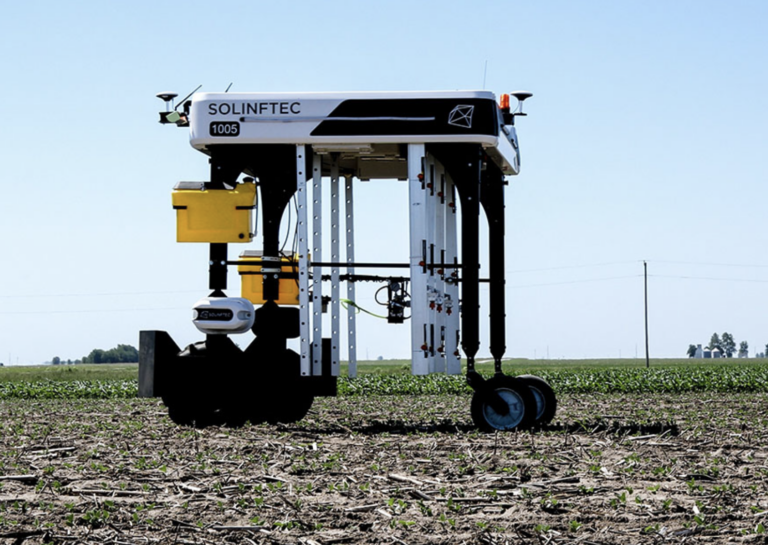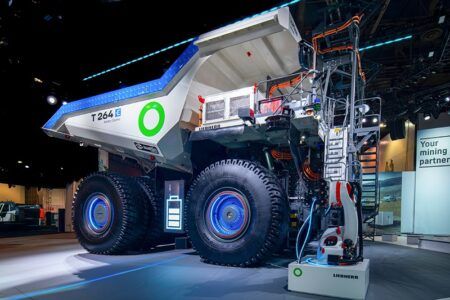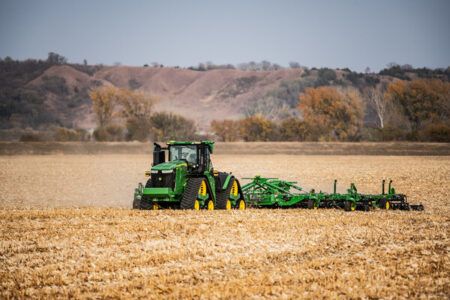Solinftec, a global leader in artificial intelligence solutions and sustainable agricultural practices, has announced that its Solix Sprayer Robot is now commercially available to farmers, cooperatives and ag-retailers, and will be on farms around the country this month. In addition to Solinftec’s existing Solix Scouting Robot, the newer Solix Sprayer is designed to detect and spray weeds.
Commercially available beginning this month, the new Solix Sprayer robot provides autonomous and sustainable spot-spray applications on grower’s fields. The robot was piloted on select farms in the Midwest last year. Similar to the Solix Scouting robot, the spray robot is powered by four solar panels that control the drive system and the spray system while providing reports on crop populations, weed identification and densities, disease identification and thresholds, insect identification and thresholds, nutrient deficiency identification and densities, NDVI among other layers of maps for data analysis, and much more useful data to the grower virtually 24/7.
This past December, in partnership with WHIN (Wabash Heartland Innovation Network) and Still Waters Manufacturing, Solinftec announced the expansion of its manufacturing capacity in the United States with the opening of its robotics plant in New Richmond, Indiana.
The collaboration and efforts of the companies make robotic technology more accessible to American producers, leading to a significant reduction in herbicide use and promoting sustainable agriculture. “This partnership represents a significant milestone for the US agricultural industry, and it’s gratifying to see two companies from our network bringing innovation to our region. Collaboration among all parties was crucial to the success of this project,” says Johnny Park, CEO of WHIN.
The use of Solinftec solutions has already led to a reduction of up to 97% in herbicide volume on properties that piloted the Solix robot last year in the United States. The key differentiator is that, through the collaboration of the three companies, the solutions will be adapted to the reality of the Midwest.





